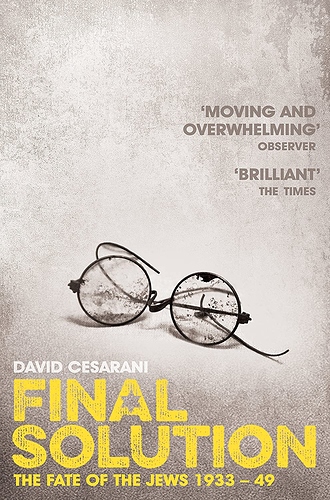I’ve had the same thought. ![]()
The Glass Hotel by Emily St. John Mandel. Lacks a standard plot and is, instead, a look into the lives of several people who are interconnected by a Madoff-esque ponzi scheme. I love the way she writes, it’s beautiful and eerie and you keep expecting it to slip into urban fantasy, but other than some ghosts (which may or may not actually be there) it’s pretty straightforward.
I didn’t like it as much as Station Eleven, but it was very good and piqued my interest in the whole Madoff scandal (which I had heard of but not really paid much attention to), causing me to read a couple non-fiction books revolving around that subject.
All of the Altered Carbon trilogy since they’re 99p each at the moment, about a quarter of the way into Waking Furies. Well, the future sucks, humanity takes absolutely its worst characteristics out into the cosmos, and our hero is a monster.
Ended up re-reading Luminous Dead. It’s excellent. A solo caving expedition in a dangerous environment, on a dangerous world. The book doesn’t get bogged down in detailing the procedure of it all, but still manages to emphasise just how important it is to be methodical and careful at all stages. It reminds me of films like Free Solo, where you think solo climbers are adrenaline-seeking mavericks writing cheques their body cannot cash, and instead you find out the climbers are 99% careful, because the risk is in the thing itself, and additional risk is just asking to die. A fantastic book that sites something known and mundane in a new environment, and the scifi aspects are mostly low-key, but present throughout. Excellent debut novel.
Walking to Aldebaran. I’m in two minds about this. On the one hand, it is well written, the concept is interesting, and it is about the right length. On the other, the tone is a kind of constant sub-par humour that is never very amusing and quickly begins to irritate. Tchaikovsky is neither as funny nor as clever as he thinks he is here, including some awful references, including the name of the protagonist.
A summary of the last month or so for me:
–All Your Twisted Secrets by Urban: I read a lot of YA, and this one had an interesting premise that I was curious to see, at the very least, how the author resolved it. A bunch of teens are intentionally trapped in a room of an otherwise empty building with a bomb and a syringe full of poison. They must kill one of their own or the bomb will go off and kill them all. Think The Breakfast Club meets Agatha Chrsitie, and you have it. It was well-executed and quick-paced, though the writing level was only average and the very last part of the ending irked me. But forgivable.
–Catfishing on CatNet: This just won the Edgar (in the YA category; the winning adult book is next on my shelf) and the MN Book Award, and I’d been curious about it anyway. It’s great. I liked the characters, the plot zipped along, and the AI is really handled pretty well. Also does a great job with real-sounding dialogue for teens. Resolves nicely too, and I believe it is the first in a series.
–Radio Silence by Oseman: This is also YA. Oseman has an online comic that I’ve looked at periodically and liked, and she does a great job with creating real teen characters with real teen voices. The novel has some great characters with real voices and problems. It is a little slow-paced–the author clearly wants to spend a lot of time developing her main character, and that’s cool, but it’s at the expense of the plot moving forward very rapidly. My initial interest in the book was due to the fantastic Boris Grebenshchikov song of the same name from the 80s (you’re welcome). It has nothing to do with that : )
–Nobody Lives Forever by John Gardner: I’ve been reading a lot of James Bond novels since covid for some reason, after not having read them in decades. I’ve been skipping around out of order between the Fleming originals and the follow-up series done by Gardner in the 80s and 90s. I remembered this being among the best of Gardner’s work, and it was really good for what it is–an action thriller, plain and simple. There are a lot of nice twists I didn’t remember and the writing rarely gets in the way of the story (which is more than I can say for a lot of Fleming’s work). Gardner’s first 7 or so Bond novels are really reliably good across the board, and it’s been enjoyable to return to them after so long, plus they read pretty quickly, so you can move through them easily.
I’m in the middle of a 900+ page epic history of Europe in the 19th century called The Pursuit of Power by Richard J. Evans.
It’s fascinating, talking about not just the political upheavals but also the social revolutions. Huge chapters just on the rise of urbanization and how people made the transition from living in the countryside to living in cities.
Lots of political history as well, of course.
I’m almost 50% through it.
Dune
It’s been probably 20 years since I last read it and while I remember it being good, I forgot just how good it is! A true classic.
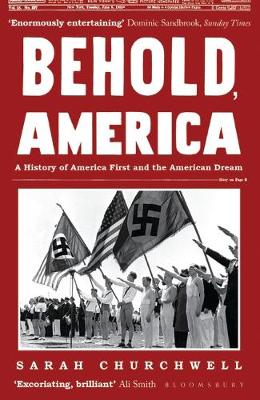
This book has never been more relevant. I read it back in 2018, thinking things would not get worse. I was wrong.
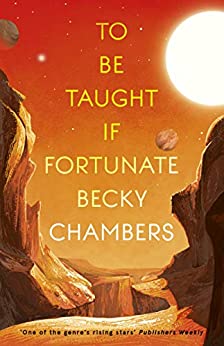
An interesting look at what happens when humans begin exploring and living on other worlds, not by terraforming, but by changing themselves to fit new environments.
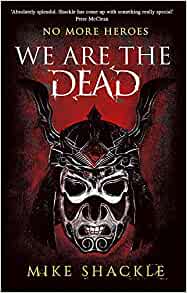
Reminiscent of Gemmell, this is a straightforwardly written tale of an overthrown kingdom and vicious occupation, and the resistance that follows.
Finch, Vandeermeer. You know what. I like Vandermeer’s work, I like his writing, I like his prose, I like his style. But FOR FUCK’S SAKE. Can he not write a fucking normal book for once. FOR ONCE. JESUS FUCKING CHRIST.
JUST A NORMAL FUCKING BOOK FOR FUCKING ONCE.
I thought the Annihilation trilogy sounded cool and started well and it devolved into ridiculousness. I haven’t had a desire to read anything else of his after that.
Out of nowhere, I’m suddenly two books into the Pillars of the Earth cycle. I’ve always enjoyed Follett, but Christsakes … do I have time for this?
I read the first one then gave up.
The thing that I struggled with were the numerous sex scenes. I’m not prudish and I’m not naive enough to pretend sex isn’t/wasn’t a part of life, but they all felt so out of joint with the rest of the book and I really got the impression of a historian nerd trying to write a sexy fantasy.
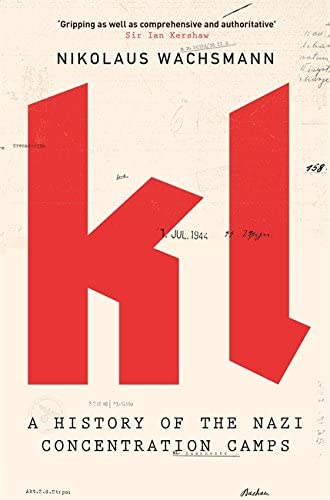
Wachsmann’s book is one of the best. 800 pages of exhaustive history about the death camps. It’s doubly impressive for drawing on so many scattered sources, and detailing the hodge-podge of facilities and changes they went through as they moved in uneven fits and starts from concentration camps for undesirables to slave labour sites for industry through to industrialised murder. Wachsmann looks at the people inside the camps, and developments outside which made them change.
Things have been fairly shit lately and I thought I was irrepressible. I was wrong. Cesarani’s 1,300 pages about the Holocaust did the trick. Perhaps the seminal volume on the subject, it’s certainly ideal reading for those of us utterly fed up with the human race. Cesarani covers it all, the improvised, erratic nature not only of the killings at first, but how and where they were done, sexual violence, collaboration, resistance, and the slide into extermination from a process that, outside Germany at least, often had very little official oversight.
Comfort reading in full measure, including all of the Rivers of London books up to Tales from the Folly. Also the Lord of the Rings, all of the Lady Astronaut serieś and all of the Alex Verus series. While not hiding under a blanket of the familar, The Smartest Guys in the Room, about Enron; John Kampfner, Why the Germans Do it Better; Jim Baggott, Quantum Reality; Tim Harford, How to Make the World Add Up. Plus a history of German reunification, in German, which overtaxes my language skills.
The Kampfner book is extremely interesting and balanced, and is ill-served by the title and Bill Bryson-esque cover. If only everyone I’ve talked to who had an opinion about it had read the bloody thing.
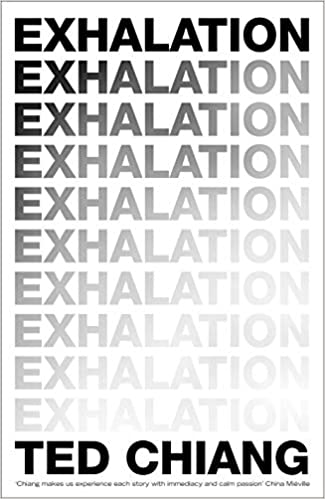
An excellent collection of short stories from the mind of the man wot done the short story Arrival was based on. Varied, weird, imaginative, wonderful.
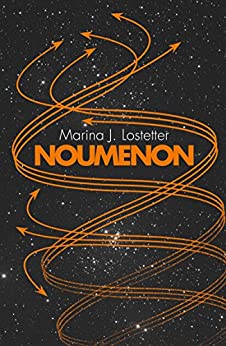
A little bit lacklustre. I’m normally a sucker for generation ship shenanigans, and while some of it was extremely well thought out, some of it appears to have had no thought in it at all. It also does that same trick with characters Children of Time pulled, which is a cheat, and it undermines the book whenever I think of it.
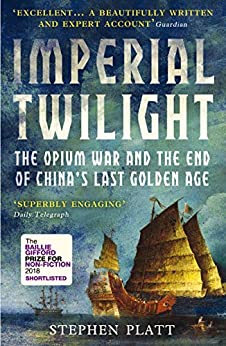
I bathe my fevered brain in the history of how the Opium War came about, as a fairly liberal Britain that has just banned slavery promptly goes to war in favour of drug smugglers, putting their tea trade at risk into the bargain.
